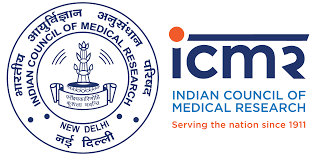Our Mission
At Bio-Microfluidics Lab, our mission is to explore the immense potential of microfluidic technologies and contribute to advancements in various scientific domains. We strive to develop innovative solutions, enhance existing methodologies, and pave the way for groundbreaking discoveries.
Projects
Ongoing Projects
| Sl. No. | Project Title | Principal Investigator(s) | Amount | Funding Agency | Duration |
|---|---|---|---|---|---|
| 1 | Portable Microfluidic Device for Onsite Diagnosis of Traumatic Brain Injuries | Dr. Abhishek Raj (PI), Prof. Manabendra Pathak (co-PI), Dr. Udit Satija (co-PI) | 83.5 Lakhs | ICMR, India | 2023-2026 |
Funding Agencies



Research Topics for B.Techs and Interns
Microfluidics is a fascinating and multidisciplinary field that deals with the behavior, control, and manipulation of fluids at the microscale. For interns interested in microfluidics, there are several important topics they should consider exploring:
Introduction to Microfluidics: Understand the basics of microfluidics, including the advantages and applications of working at the microscale. Learn about the differences between microfluidics and traditional fluid dynamics.
Microfabrication Techniques: Explore various techniques used to create microfluidic devices, such as photolithography, soft lithography, and 3D printing. Learn how to design and fabricate microfluidic chips.
Fluid Flow at the Microscale: Study the unique fluid behavior at small scales, including laminar flow, viscous effects, and the Reynolds number concept. Understand how these behaviors differ from macroscale fluid dynamics.
Microfluidic Chip Design: Learn how to design microfluidic devices for specific applications. This includes designing channels, chambers, mixers, separators, and other components to achieve desired fluid manipulation.
Lab-on-a-Chip Systems: Explore the concept of lab-on-a-chip devices, which integrate multiple functions onto a single microfluidic chip. Learn about their applications in various fields such as medical diagnostics, environmental monitoring, and biotechnology.
Microfluidic Transport Phenomena: Study the transport of particles, cells, and molecules within microchannels. This includes topics like diffusion, sedimentation, and electrokinetic phenomena (electrophoresis, electroosmosis).
Microfluidic Sensors and Detection: Learn about sensors integrated into microfluidic platforms for real-time monitoring and analysis. Understand principles of optical, electrochemical, and mechanical sensing.
Biological Applications:Explore microfluidics' applications in biology and biochemistry, such as cell sorting, cell culture, DNA analysis, and protein analysis. Understand how microfluidic devices enable miniaturization and automation of assays.
Droplet Microfluidics:Study the generation, manipulation, and merging of microscale droplets. This technique is widely used in applications like high-throughput screening and single-cell analysis.
Microfluidic Simulation and Modeling: Learn about computational tools used to simulate and model fluid behavior in microfluidic systems. Gain experience in using software to predict flow patterns, mixing, and other behaviors.
Point-of-Care Diagnostics: Understand how microfluidic devices are being developed for point-of-care diagnostics and healthcare applications. Explore the challenges and opportunities in this area.
Fluid-Structure Interactions:Investigate how fluid flow interacts with structures within microfluidic devices, such as micropillars, membranes, and valves. Learn about the effects of these interactions on device performance.
Commercial Microfluidic Platforms: Explore commercially available microfluidic platforms and tools. Understand how different companies are contributing to the advancement of microfluidics.
Ethical and Regulatory Considerations: Consider the ethical implications and regulatory aspects of microfluidics, especially in medical and biotechnological applications.
Research Techniques: If the intern has the opportunity to work in a lab, they should gain hands-on experience in microfluidic device fabrication, experimentation, data analysis, and possibly even contribute to ongoing research projects.
Remember, microfluidics is a rapidly evolving field, and interdisciplinary knowledge is key. Interns should aim to gain a solid understanding of both the fundamental principles and the practical applications of microfluidics to fully appreciate its potential and contribute effectively to ongoing projects. Upon successful completion of the internship, interns will be awarded a certificate of completion.